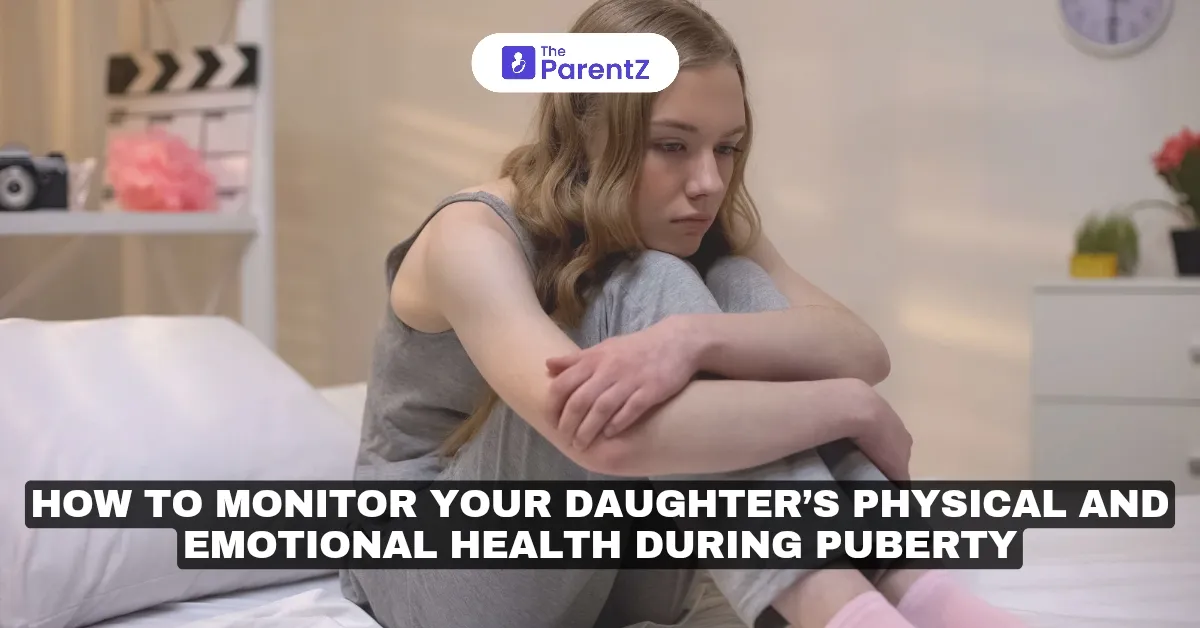Physical Health: What to Watch For?
1. Growth and Body Changes
Breast development (starts between ages 8-13)
Growth spurts – She may grow several inches quickly
Hips widening – A normal part of puberty
Body hair growth – Underarm and pubic hair will appear
What to do
• Track height and weight yearly
• Ensure a balanced diet for healthy growth
• Reassure her that everyone develops at their own pace
2. Menstrual Health
Periods may be irregular at first but should stabilise within 2 years
Look for severe pain, heavy bleeding, or very irregular cycles
What to do
• Encourage her to track her periods (use an app or journal)
• Teach her how to manage periods with good hygiene
• Watch for signs that may need medical attention
3. Skin & Hair Changes
Acne and oily skin – Common due to hormonal changes
Hair texture may change
What to do
• Encourage a gentle skincare routine
• Consult a doctor if acne is severe
• Reassure her that changes are normal
4. Sleep Patterns
Puberty can disrupt sleep due to hormonal shifts
She needs 8-10 hours of sleep per night
What to do
• Set a consistent sleep schedule
• Reduce screen time before bed
• Create a calming bedtime routine
5. Nutritional Needs
Her body needs more calcium, iron, and protein
Watch for low energy or dizziness (possible vitamin deficiency)
What to do
• Encourage healthy eating habits
• Ensure she gets enough iron, protein, and essential vitamins
• Address any nutritional gaps with professional advice
Emotional Health: What to Watch For
1. Mood Swings & Emotions
Mood swings are normal but extreme emotional distress is not
She may feel more sensitive, irritable, or anxious
What to do
• Be patient and supportive
• Encourage open conversations about her feelings
• Teach her healthy coping strategies (journaling, exercise, mindfulness)
2. Self-Esteem & Body Image
She may compare herself to others or feel insecure
Social media and peer pressure can affect her confidence
What to do
• Reinforce that everyone develops differently
• Focus on her talents, skills, and personality
• Watch for negative self-talk or obsession with weight
3. Stress & Anxiety Levels
School, friendships, and body changes can increase stress
Signs of anxiety: trouble sleeping, loss of interest in activities, withdrawal
What to do:
• Encourage relaxation techniques (deep breathing, hobbies)
• Offer emotional support and reassurance
• Seek professional help if anxiety becomes severe
4. Friendships & Social Life
She may drift from old friends and form new social circles
Peer pressure can influence her decisions
What to do
• Ask about her friends and how she feels about them
• Teach her to recognize healthy vs. toxic friendships
• Ensure she feels comfortable setting boundaries
5. Mental Health Warning Signs
Red flags that need attention:
Constant sadness or withdrawal from activities she used to enjoy
Major changes in eating or sleeping habits
Self-harm or talk of feeling hopeless
What to do
• Don’t ignore signs of distress
• Offer emotional support and let her know she’s not alone
• Seek professional help if needed
How to Support Your Daughter Through Puberty?
Create a safe space for open conversation
Be honest about puberty, periods, and emotional changes
Encourage healthy habits (good nutrition, exercise, sleep)
Monitor without hovering – Observe, but give her independence
Lead by example – Show positive self-care and resilience
Final Thoughts
Puberty can be a challenging time, but with your support, your daughter can navigate it with confidence. By monitoring her physical and emotional health, keeping communication open, and reassuring her, you’re helping her grow into a strong, self-assured young woman.





Be the first one to comment on this story.